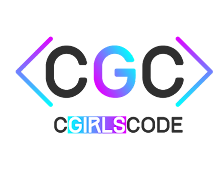By Alma M. Rinasz
This blog post can also be found on Glassbreaker's blog. It's been re-posted here so that non-members can read the article.
Made With Code. Women Who Code. Girls Who Code. Girl Develop It. The list of organizations and initiatives to empower and help women and girls learn about coding is growing longer and longer. This is a good thing, no doubt about it. But it’s a short list when you take into consideration that there are still places in this world where women and girls have limited access to education, the Internet, and the languages that communicate messages of empowerment. Learning to code across borders has its own set of difficulties. Social norms, religion, economic limitations continue to negatively impact the lives of girls and women. The aforementioned initiatives come out of developed countries, where women have an unprecedented quality of life in comparison to women in other countries. In a sense, it is a top-down approach, ideas and change trickle down.
In 2001, I permanently relocated to Latin America. Becoming an expat, which isn’t more than a fancy term for immigrant, was the adventure of a lifetime. By living and working in Mexico, I’d finally be able to master Spanish like a native speaker and I’d be able to do something different with my life. Like many native English speakers who move to non-English speaking countries, I was asked to teach English almost immediately. ESL instruction was not the career path I thought I’d have out of college, but in retrospect, being a teacher has opened up a world of opportunities for me. When you teach, you have to constantly update and improve: you are always learning. This is where learning to code and learning a foreign language, from my perspective are very similar.
Over the years I have had students tell me how hard it is for them to learn English when in reality they already know it, they just haven’t been consistent in using it. The fact is that if you aren’t using a skill on a daily basis, you’ll struggle when you do try to use it. Non-English speaking women who want careers in tech discover quickly that they must use English a lot. So now the barriers for women in non-English speaking countries aren’t just cultural, economic, etc. but there’s the added element of language.
Women outside the US who want careers and opportunities in tech are faced with a unique set of obstacles. Learning ESL is one that can make or break their careers. It’s a reality that non-native English speakers are up against in tech, so why not provide ESL support for those women and girls interested in tech? By doing this, we, as in the global educational and tech communities, help level the playing field for women and girls a little more and provide opportunities that can improve not only the lives of individuals but entire communities as well.
Alma M. Rinasz is currently learning to code and a founding member of C Girls Code. Established in Central Mexico, C Girls Code exists to help promote, educate, train and empower women and girls in tech. For more information, please visit the C Girls Code Facebook page or follow Alma on Twitter @AlmaRinasz.

Comments
Post a Comment
Hi! ¡Hola! Leave your comment here. ¡Déjanos tu comentario!